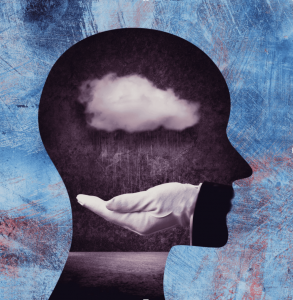Openness, Transparency, and Understanding
Defying mental health issues and the stigmas that come along with them is a journey we make progress on daily. Openness, transparency, and understanding are the three words that we need to understand when we talk about mental conditions and defying mental health stigma in general.
“Everyone around you is fighting a battle that you are not aware of.
Be compassionate, be kind and help those that are silently struggling.”
How?
Openness to the idea of what defying mental illness is, transparency in thinking, and understanding the dynamics of what an individual goes through when faced with the challenge of affected mental health conditions.
Mental health is as important as physical health, if not more, because your mind is the most powerful organ you have, so it is crucial for us to keep our mental health in check. Still, unfortunately, the number of stigmas attached to most illnesses associated with the brain is vast; mostly due to a lack of understanding.
While searching for an in-depth understanding of what a mental illness can look like, and how each experience is different. In that case, this blog will help create a guide of what to do when you find someone struggling and the most effective ways to help them, and what treatment to opt for if they are also struggling with drug alcohol addiction.
Types of Mental Illnesses
- Mood Disorders
- Dissociative Disorders
- Anxiety Disorders
- Eating Disorders
- Compulsive Disorders
- Behavioral Disorders
- Bipolar Disorder
- Substance use disorders
Mental illness is a serious topic but there is still a long way to go when it comes to awareness. Having the masses realize the gap that needs to be bridged when coming to terms with the understanding that mental illnesses prevail, and that anyone who suffers deserves access to proper treatment and rehabilitation, without facing demonization for seeing help.
Some of the harmful effects of stigma can include: Reluctance to seek help or treatment, lack of understanding by family, friends, co-workers, or others, fewer opportunities for work, school or social activities or trouble, finding housing bullying, physical violence, or harassment.
Addiction
Addiction is a complex condition, a brain disease manifested by compulsive substance use, despite harmful consequences. Upon broadening one’s horizons and deeply understanding this phenomenon of defying mental illness and addictive behavior, you know that this is a disorder people suffer from and how it completely changes their lives. It affects them in almost all domains, interpersonal and intrapersonal relationships.

Behavioral Changes
People with a substance use disorder may have distorted thinking and behaviors.
Changes in the brain’s structure and function cause people to have intense cravings, they’re good at defying mental illness, personality changes, abnormal movements, and other addictive behavior. Brain imaging studies show changes in the brain’s areas related to judgment, decision making, learning, memory, and behavioral control.
According to the National Institute on Drug Abuse, people begin taking drugs for a variety of reasons
The National Institute on Drug Abuse (NIDA) says people begin taking drugs for a variety of reasons. Some try marijuana or prescription drug, out of curiosity. Others do it to relieve stress or make themselves feel better when they are feeling bad. Still, others use drugs because they think it will be fun, like the characters in many movies for young people. Some of the reasons include:
- to feel good — the feeling of pleasure, “high,” or “intoxication.”
- to feel better — relieve stress, forget problems, or feel numb
- to do better — improve performance or thinking
- curiosity and peer pressure or experimenting
Statistics
Over 350,000 die from overdoses (alcohol and illicit drug use disorders) each year.
Collectively, smoking, alcohol, and illicit drug use kill 11.8 million people each year, more than the number of deaths from all cancers; this is how severe the disorder is and the number of lives lost to the battle with drug addiction. This also shows how lethal the consequences of defying mental illness can be.
Getting Help
The silver lining is that once identified, a person struggling can access support networks to seek help and begin their effective treatment and journey to recovery.
The first step is recognition of the problem. The recovery process can be delayed when a person lacks awareness of addictive substance use. Althoughinterventions by concerned friends and family often prompt treatment, self-referrals are always welcome and encouraged by rehab centers for behavioral therapies. The same rehabs also manage co-occurring disorders.
Why is quitting so hard?
Many factors make quitting a complicated process. They typically include:
- Physical.
- Mental.
- Emotional.
- Biological
Addiction affects the frontal cortex of your brain in such a way that it alters your impulse control and judgment. The brain’s reward system is also changed so that the memory of previous rewards can trigger strong urge or increased “hunger” for drugs or rewarding experiences, despite harmful effects. This makes it very hard to say no to the drug cravings and even more challenging when it comes to quitting it.
Understanding Substances and Tolerance
Tolerance and withdrawal are vital factors that contribute to drug misuse. They are strongly interconnected and significant contributions to why you got addicted in the first place. If people did not develop tolerance and withdrawal, they would probably find it a lot easier to quit. Patience is both a physical and psychological process. The more times the behavior is repeated, the less sensitivity you have to it, and the more you need to get the same effect. Drugs, such as alcohol and opiates, work on specific parts of the brain, creating physical tolerance.
Withdrawal Symptoms
As you become addicted, you may experience symptoms of withdrawal when you suddenly stop using. Physical withdrawal symptoms may occur, such as shaking, upset stomach, cravings, anxiety, or depression. These symptoms can be very severe and dangerous, and often require a medical detoxification process to help keep you safe and mitigate the discomfort.
Guilt and Justification
The discomfort of these feelings of guilt when your behavior does not fit with your standards of “right and wrong” can be a strong motivator to make changes. Sometimes it can work against you, causing you to justify your behavior to yourself and other people. This can get in the way of the decision to quit.
How Can you Quit?
Substance abuse and mental health treatment can help you cope with the uncomfortable feelings and the struggles you are facing, counseling and family therapy can also help you unravel the irrational thoughts that keep you stuck to your addictive behavior. Quitting is not easy or straightforward, but a good drug counselor, support group of friends, and family members, along with a treatment program, will help you achieve sobriety when you are ready.
It is vital to be aware of what a mental illness is and what aligns with the term “mental disorders.” It is also crucial to spread awareness and address the lack of understanding in our society with correct information about what it is and how to help someone who is suffering from addictive behavior and fighting the mental health stigma.

Finally, willing to take the first step towards help?
You are not alone; We are here to help you. At Pacific Sands Recovery Center, our health professional can answer your questions about defying mental illness and help you find a nearby rehab facility that is right for your loved one. Call us today and get started on the road to recovery.
The Substance Abuse and Mental Health Services Administration (SAMHSA) National Helpline can also provide 24/7, confidential, and free information about substance use disorders and mental health services.
